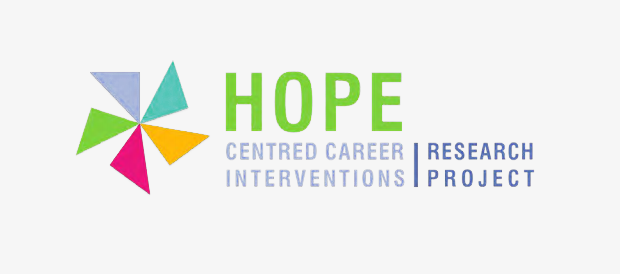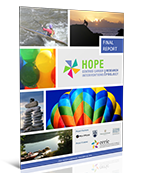
The Hope-Centred Career Interventions project led by Tannis Goddard (MixtMode, consulting division of Training Innovations), Dr Norman Amundson (University of British Columbia), Dr Spencer Niles (College of William and Mary) and Dr Hyung Joon Yoon (The George Washington University) is a follow up to a CERIC-funded exploratory project on the importance of Hope for career decision-making as assessed by the Hope-Centred Career Inventory (HCCI).
Findings from this earlier research suggested that higher levels of hope are linked to higher GPAs and a clearer career identity among post-secondary students. The previous research team also identified 25 internal and environmental factors that influenced hope including future goals, attitude, passion, self-efficacy, social and professional contribution, refocusing, negative feelings and thoughts, and physical and mental health. The environmental factors identified included support, role models, possibilities and opportunities, school, negative/ unsupportive people, situations outside one’s control, and economic/financial challenges.
The primary goal for the newly funded Hope-Centred Career Interventions project is to now develop a range of counselling intervention methods and tools that can be used by a career practitioner when engaging a client in either face-to-face delivery or through online delivery. These counselling interventions will be used with unemployed jobseeking adults accessing public employment services in Canada. This research project will focus on the issue of hope through these counselling interventions to better understand factors that influence hope and to understand the impact and difference between face-to-face and online delivery channels.

Learn more at the Hope-Centred Career Interventions project website.
